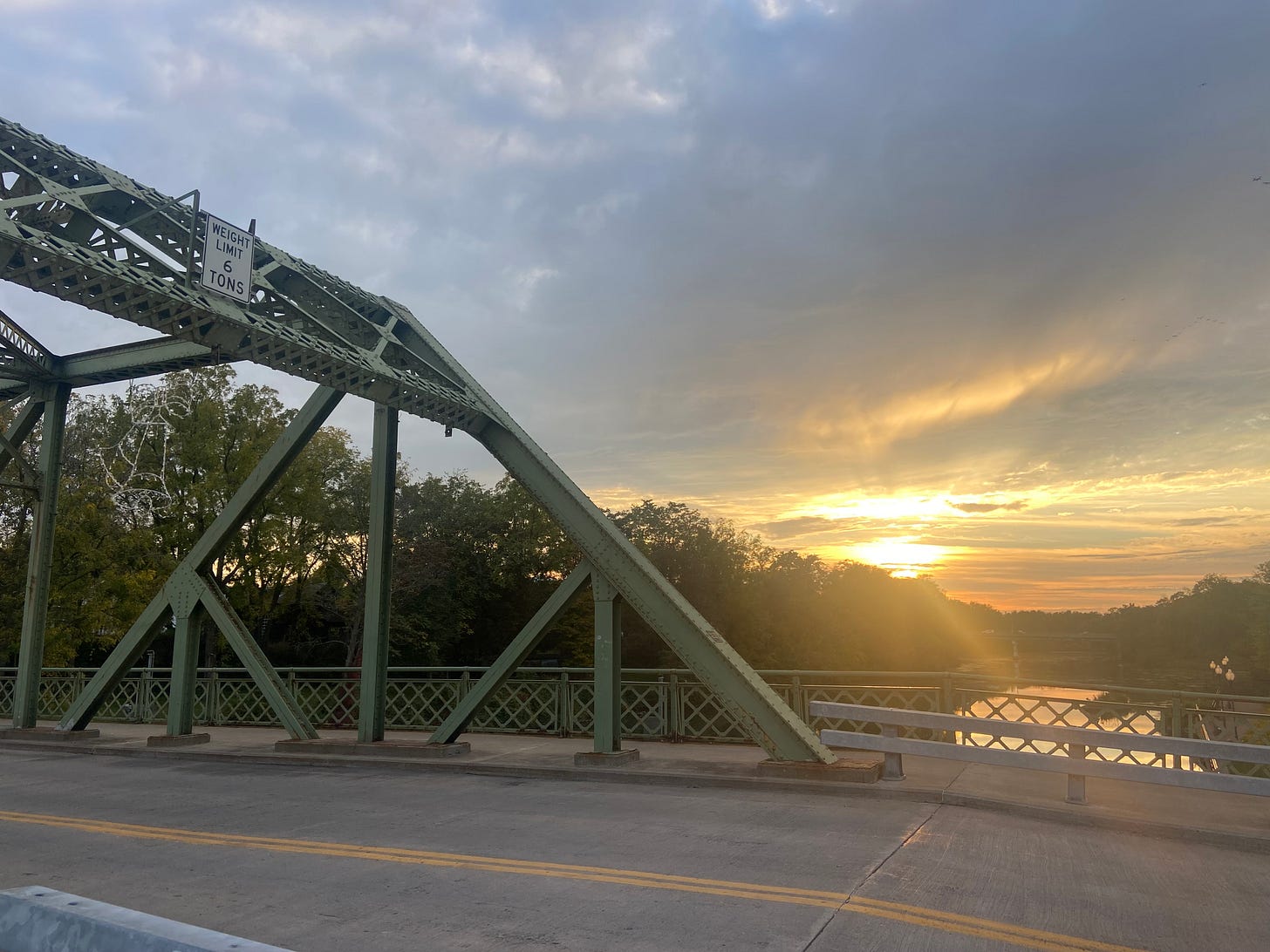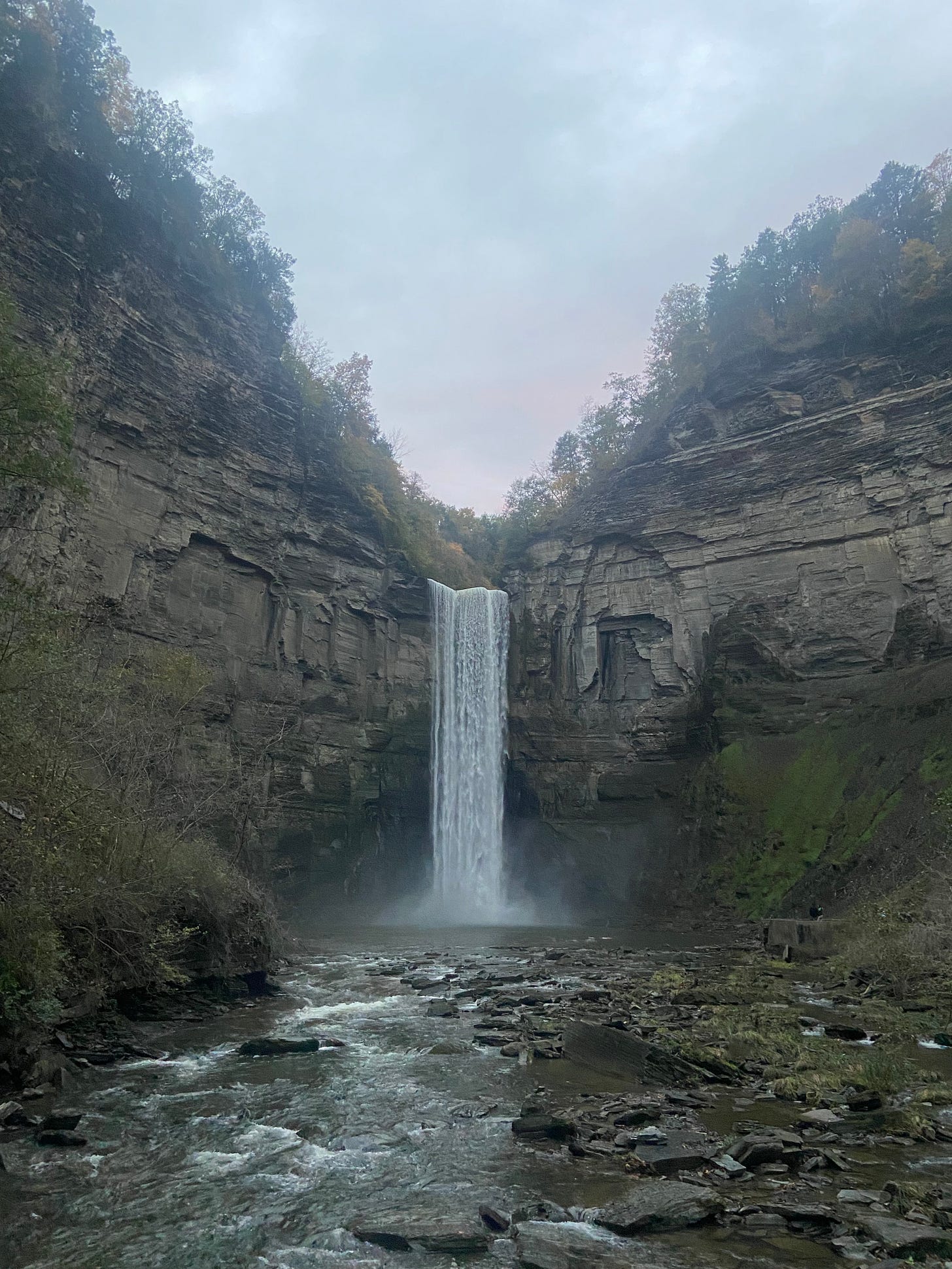A couple of weeks ago, my girlfriend and I visited Seneca Falls, N.Y., a small town in the heart of the Finger Lakes. In July 1948, the village held the first women's rights convention in the United States, which launched the women’s suffrage movement, which more than seven decades later ensured women the right to vote. Today, the Women's Rights National Historic Park tells the convention's story and impact, not far from the Harriet Tubman home in nearby Auburn.
Seneca Falls is also known for something else: It is believed to have inspired the Christmas classic, "It's a Wonderful Life," the 1946 film where an angel is sent to help a frustrated businessman by showing him what life would have been like if he had never existed. The man who wrote the screenplay, Frank Capra, visited the town while writing the script, and there are numerous references to the area in the movie, not the least of which is the bridge on which George Bailey contemplates suicide.
The other connection is the remarkable story of Antonio Varacalli, a Seneca Falls resident who in 1917 drowned while rescuing a young woman from the canal. The woman was apparently trying to commit suicide when Varacalli was walking in the vicinity of the bridge. He heard someone scream, ran to the canal and jumped in to save her. But he could not swim. After helping the woman survive, he sank in the water and drowned. Later, a fund was started to help bring Varacalli's family from Naples, Italy to New York, where they could reunite for the first time in 15 years. It had been Varacalli's dream for his family to reunite, and they finally did, thanks to his bravery and selflessness in saving the woman. This series of events inspired a number of storylines in the movie.
The movie's main storyline also is inspired by the book, 'The Greatest Gift' by Philip Van Doren Stern. Initially, no magazine would run the story, so he wrote it in a small pamphlet and sent it out as his 1943 Christmas card for friends and family. Then it was shared and shared, until the movie adopted it. (That he self published the story himself, despite magazines rejecting it, is in itself a lesson in persistence.)
Here's why I share this: The book and move carry a profound message that each life is exceptionally and uniquely important. George Bailey, for example, learns that had he not been alive, he wouldn't have been present to to save his drowning little brother, Harry.
Other lessons from the story:
Don't compare yourself to others. We are all on our own path
Realize the beauty right in front of you. When George is brought back to Earth by the angel, he is so appreciative to simply hug his wife and children
Character > Money/Fame
One life touches so many others
Wrote Capra in his autobiography: "There is a radiance and glory in the darkness, could we but see, and to see we have only to look. I beseech you to look."
The first time I watched the movie as an adult, on Christmas right before the pandemic, my eyes welled with tears. It was a touching reminder of the beauty of our everyday lives, everyday actions and choices, and the impact we can have on other people. The story offers a powerful message about the significance of the lives of all of us. Every so often, it's worth going back in our lives, reflecting on the kindness we have done for others, and considering what others have done for us.
Life itself is the greatest gift — the gift of life, of being a part of this world and taking part in it. Let's not forget that our mere existence is a beautiful miracle.
The more you experience in life, the more you have to offer others:
To quote Ralph Waldo Emerson: "To know even one life has breathed easier because you have lived. This is to have succeeded."
A few other good thoughts I'm pondering:
"Life is not fair, it never was and it isn't now and it won't ever be. Do not fall into the trap — the entitlement trap of feeling like you're a victim. You are not." -- Matthew McConaughey
We all view the world as if we're at the center of the universe. We're not. Zoom out. We're a grain of sand in the universe. Don't take things too seriously.
You enter the world with nothing and leave with nothing. Take risks. We have very little to lose.
From Substack's newsletter: "In my experience, growth—personal growth, creative growth, professional growth—tends to happen the way that one of Hemingway’s characters says he went bankrupt: Gradually, then suddenly. The outside observer only sees the sudden part: the big promotion, the book deal, the career that seems to just take off. For those of us in the process of growing, however, it can feel excruciatingly slow. We’re grinding away and nothing much is happening, or the results feel quite meager compared to the amount of effort being expended.
But if there’s one thing that I’ve learned personally and also through researching the work lives of writers and artists, it’s that when you feel stuck, that’s actually when you’re making the most progress. It’s the condition of being stuck—of trying things out and not being happy with the results, trying different approaches and still not being happy, flailing around in frustration, starting over, starting over again—that fosters growth, though you might not know it at the time."
Yung Pueblo, Meditator, Writer & Speaker:
“Society glamorizes large victories and huge leaps, but it does not highlight the small daily actions that make long-term success possible. Slow progress is actually the way to get to a better life. Slowly building self-love and self-awareness will help you construct a sturdy home within yourself. Inner work that is done too quickly stands the risk of producing superficial results.”
Two inspiring things on Twitter:

Photo of the week: Taughannock Falls State Park, near Ithaca, N.Y. The 215-foot waterfall is the highest single-drop waterfall east of the Rockies.
Parting thought: You are not this next thought — You are the field of awareness watching the thought come and go
Be joyful and celebrate your gifts,
Matthew






I Matt - I look forward to reading this blog! I was one of your loyal S.U. readers - I miss your byline there and am not seeing you elsewhere on The Athletic - are you writing elsewhere now? I think what helps my inner peace is having an Attitude of Gratitude - Lawrence
Beautifully written. It’s my favorite movie too